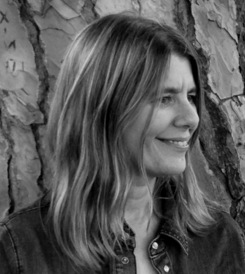
Associate professor, Computer Science
University of Miami
Computational neuroscience; natural scene statistics; machine learning
odelia [at] cs.miami.edu
It’s now a particularly exciting time to advance such questions, due to progress in machine learning, and the availability of experimental neuroscience and psychology data. Therefore, we are building computer models of neural processing in the brain, and collaborating with experimental groups in neurophysiology, psychology, cognitive science, and the medical school.
A main focus has been building models based on the hypothesis that images, movies, and sounds have predictable and quantifiable statistical regularities to which the brain is sensitive. While building models of higher visual cortical areas has been an obstacle in the past, recent advances in deep learning have opened up exciting opportunities. We are currently particularly interested in understanding intermediate visual cortical areas of the brain that have access to more complex structure in the image than primary visual cortex. To this end, we are incorporating more biologically-inspired computations into deep neural networks, such as flexible normalization nonlinearities we have worked on in the past for early cortex. By incorporating more biologically realistic computations into deep learning models, we expect our approaches will lead to better artificial systems, that can ultimately generalize better across stimuli and tasks. Beyond the visual system, our work has spanned the auditory and motor systems. More recently, we have also been part of a collaborative team at the University of Miami for modeling brain injury with machine learning approaches.
We have received funding from the NSF Robust Intelligence, the NIH National Eye Institute, an NIH CRCNS (Collaborative Research in Computational Neuroscience) grant, a Google faculty research award, the Army Research Office, and an Alfred P. Sloan Research Fellowship. We have received a GPU hardware donation from NVIDIA.
People:
Luis Gonzalo Sánchez Giraldo, postdocNasir Laskar, PhD student
Joshua Bowren, PhD student
Xu Pan, PhD student
Former lab members:
Michoel Snow, MD/PhD student (now faculty member at Albert Einstein College of Medicine)Ruben Coen Cagli, postdoc (now Assistant Professor at Albert Einstein College of Medicine)
Florian Röhrbein, postdoc (now in TUM’s Informatics)
Toviah Moldwin, research position (now doing PhD at Hebrew University)